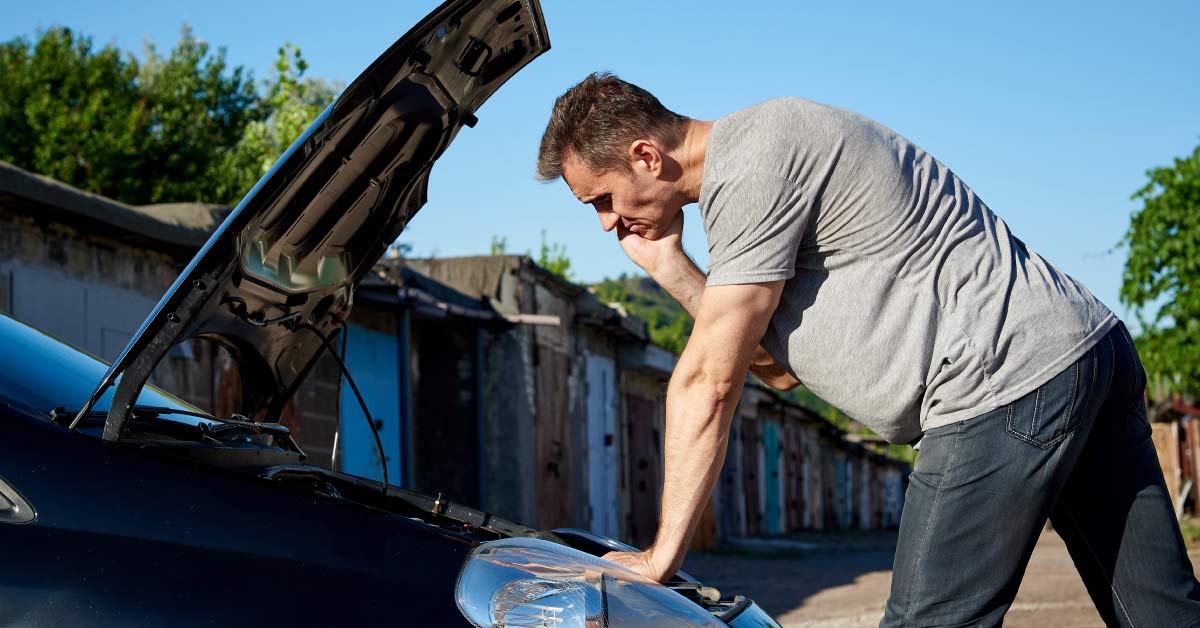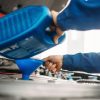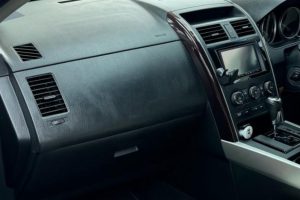The DIY trend has been growing by leaps and bounds. Thanks to the likes of YouTube and Pinterest, you can learn almost anything given enough time. However, in the automotive repair world, there are a few things that are differentiated by what you ‘can’ do and what you ‘should’ do, and the same goes for performing DIY car repairs.
Depending on the skill set of an individual, you can obviously carry out easy car fixes such as checking the oil level and performing an oil change, changing bulbs, cleaning brake pads, changing wiper blades, and other such trivial maintenance tasks. But for complex car repair operations involving specialized machinery such as wheel alignment, clutch replacement, OBD diagnosis, etc., you absolutely need to take your car to a workshop.
Although these tasks are possible, it is not something that you must look forward to. Cars are a huge piece of machinery that involve hundreds of moving parts and performing operations on them is not without its own set of risks. Not only is it dangerous, if you have no experience in fixing the issue, you can also kickstart an entire new chain of malfunctions. You can easily learn how to check the fluid levels as well as identify common error codes, but attempting to perform crucial repairs on your own risks the safety of yourself, as well as the safety of fellow drivers on the road.
Speaking of modern ECU controlled cars, performing even a simple oil change may be difficult. What’s more problematic with an amateur repairing a car is the fact that you may start a repair and leave it mid-way. This is one of the worst possible experiences that a car owner can have. Since you are already halfway through the repair, the possibility of driving it to a friendly garage is out of the question now. You may also overlook the issues that may seem trivial at first glance but hide a much deeper issue underneath the grease and oil.
Can I Fix My Car Myself?
Unless repairing cars is a hobby, it’s not an essential skill to possess. With so many modern cars plying on the streets today, it simply requires an extreme level of dedication and plenty of time to fulfill even a basic car maintenance checklist. Even if we take the simplest of issues such as troubleshooting basic error codes on modern cars, it can require specialized computers that communicate with the car’s electronics.
There are people out there who may perform a DIY car repair flawlessly. However, these instances are a dime a dozen and either the individuals got very lucky, or they have the experience and technical expertise of a professional auto mechanic.
When should you not repair your car?
You should not repair your car when it comes to the major repairs. As discussed earlier, the engine and its specifications are not meant to be an unprofessional repair ground. Any mistake with the fixes might lead your car to a complete and permanent halt. It is highly advisable that you do not attempt at any unprofessional car repairs.
If you are looking to repair your car by yourself, below is a list for you to ponder over:
-
Do you have the required expertise?
Cars are a complex piece of heavy machinery that requires a certain level of expertise in the individuals performing the repair duties. Before you take your car to a self-service garage, a task as simple as a timing belt replacement can be a nightmare for someone who doesn’t know what they are doing. Although you may pick some information watching YouTube, are you willing to put in the countless hours required to hone in your skills to perform even a basic repair? And even after that, there is no guarantee that you would be able to perform the repair effectively.
-
Do you have the proper tools required for the repair?
Even basic car repairs require a specific set of tools for the job. Performing an oil change requires specialized spanners, lifts, and a proper understanding of what parts to open and what parts to avoid. Not to mention the cash required to acquire these tools in addition to the cost of the parts or the consumables. The tools are also vehicle specific. So you need to be absolutely certain about your requirements lest you want to waste some more time looking for the right tool. Are you willing to research the tool requirements for your car and fork out extra cash for the same?
-
Can you successfully diagnose the issues of your car?
You may have thought numerous times: ‘I will fix my car myself!’. However innovative this may seem, overlooking even a simple oil leak can lead to disastrous consequences. It could be extremely unsafe and the chances of you getting stranded on a highway are tremendously high. A professional mechanic not only fixes the apparent issues, but they can also identify potential issues that may arise later.
DIY automotive repairs might seem like a great idea, just until you run into an entirely new set of issues. Not only is it dangerous, but you can also run into reliability issues, and any mistakes can lead to even costly repairs that are completely unrelated to the original issue. It is important to take your car to a auto mechanic for major repairs involving the engine or the transmission. This ensures the safety of you and your family, as well as the safety of others on the road.







